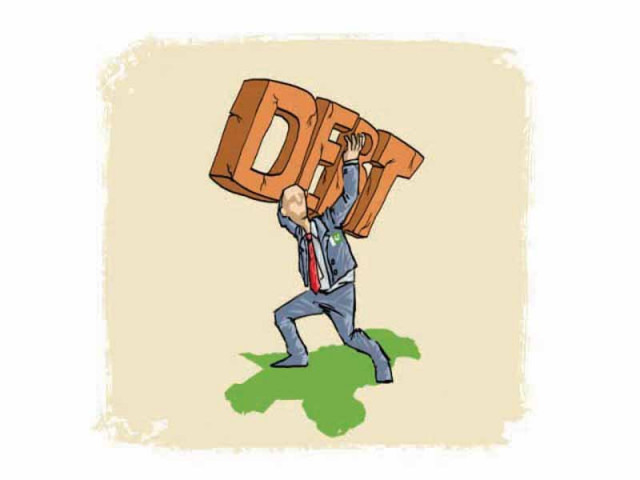Crossing the debt ceiling
While this is not a desirable situation, it is nonetheless a useful policy option that is rendered illegal by the law

The government has long been flirting with breaching the debt limits set in the 2005 Fiscal Responsibility and Debt Limitation Act and has at long last crossed them. ILLUSTRATION: JAMAL KHURSHID
Yet, far from taking measures to alleviate the problem, the Nawaz Administration, particularly Finance Minister Ishaq Dar, does not appear interested in cracking down on tax evasion, the root cause of Pakistan’s high and growing debt. By all measures, growth in revenue collection has fallen to the single digit, compared with growth rates exceeding 15 per cent even in most years of the otherwise lackadaisical Zardari Administration. We would call on the government to redouble its efforts to collect more taxes, particularly from the absconding economic elite, but that would imply there was an effort in the first place. However, even as we find fault with the government breaching the Debt Limitation Act, we do believe it to be an unwise law that the government should probably repeal. Fiscal policy can be a useful countercyclical tool that the government can use to revive economic growth during recessions, an action that can sometimes justifiably requires higher, albeit temporary deficits that can run up the national debt for a few years. While this is not a desirable situation, it is nonetheless a useful policy option that is rendered illegal by the 2005 law. Hence, while this breach is a useful reminder of the need to crack down on tax evasion, the law itself is perhaps, not the best way to achieve fiscal responsibility.
Published in The Express Tribune, February 6th, 2015.
Like Opinion & Editorial on Facebook, follow @ETOpEd on Twitter to receive all updates on all our daily pieces.

1733949940-0/image-(8)1733949940-0-208x130.webp)

















COMMENTS
Comments are moderated and generally will be posted if they are on-topic and not abusive.
For more information, please see our Comments FAQ